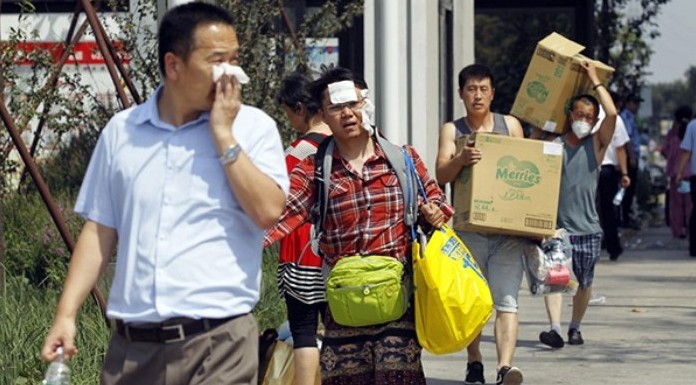The massive explosion that killed 44 people in Tianjin has seriously compromised air quality throughout the city.
Samples taken in Tianjin showed an elevated concentration of Toluene in the atmosphere, a chemical solvent typically used as an industrial feedstock. The Chinese national standard for safe exposure to Toluene is only 2.4 milligrams per cubic meter of air, but it was 3.7 milligrams yesterday.
The air in Tianjin also contained higher than normal levels of volatile organic compounds and major air pollutants. While normal Tianjin municipal standards for such pollutants is 2.0 milligrams per cubic meter, yesterday, the air was measured at 5.7 milligrams per cubic meter.
The explosions had some Tianjin residents worried about the lingering effects of the chemicals that were blown up, with some going online to voice their suspicions that the air may have become toxic. According to China Daily, data from a municipal air quality monitoring website showed that PM 2.5 levels rose from 76 micrograms per cubic meter to 117 within 24-hours of the blast, while PM10 levels rose from 129 micrograms to 206.
Meanwhile, officials in Beijing have denied speculation that hazardous gases from the Tianjin blast have blown into the capital. According to the Beijing Environmental Protection Bureau, Beijing is currently experiencing winds from the west and southwest. With Tianjin 150 kilometers to the southeast of Beijing, experts are predicting that the winds will blow pollutants from the blast into the nearby Bohai Sea.
As a precautionary measure, the city’s drainage outlet to the sea has been closed, and an investigation into water quality is currently being conducted by the environmental authority.


